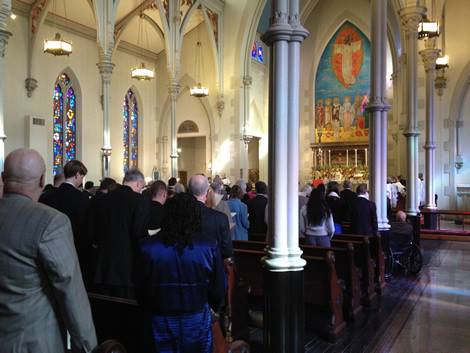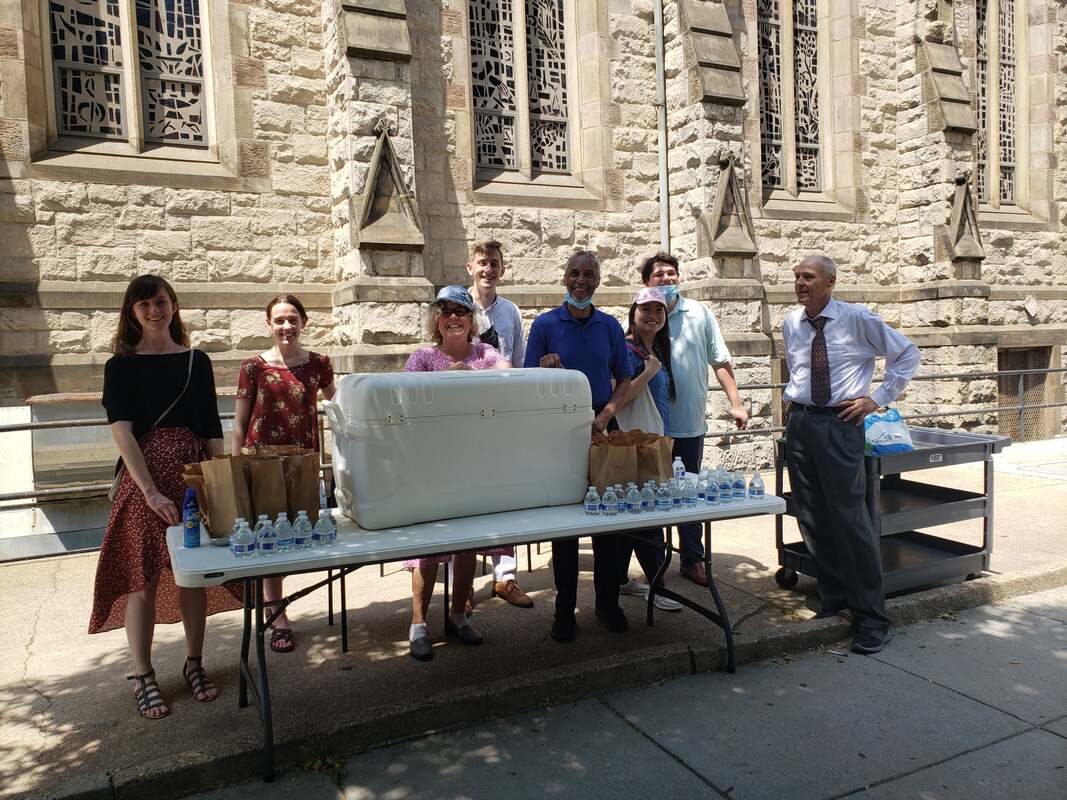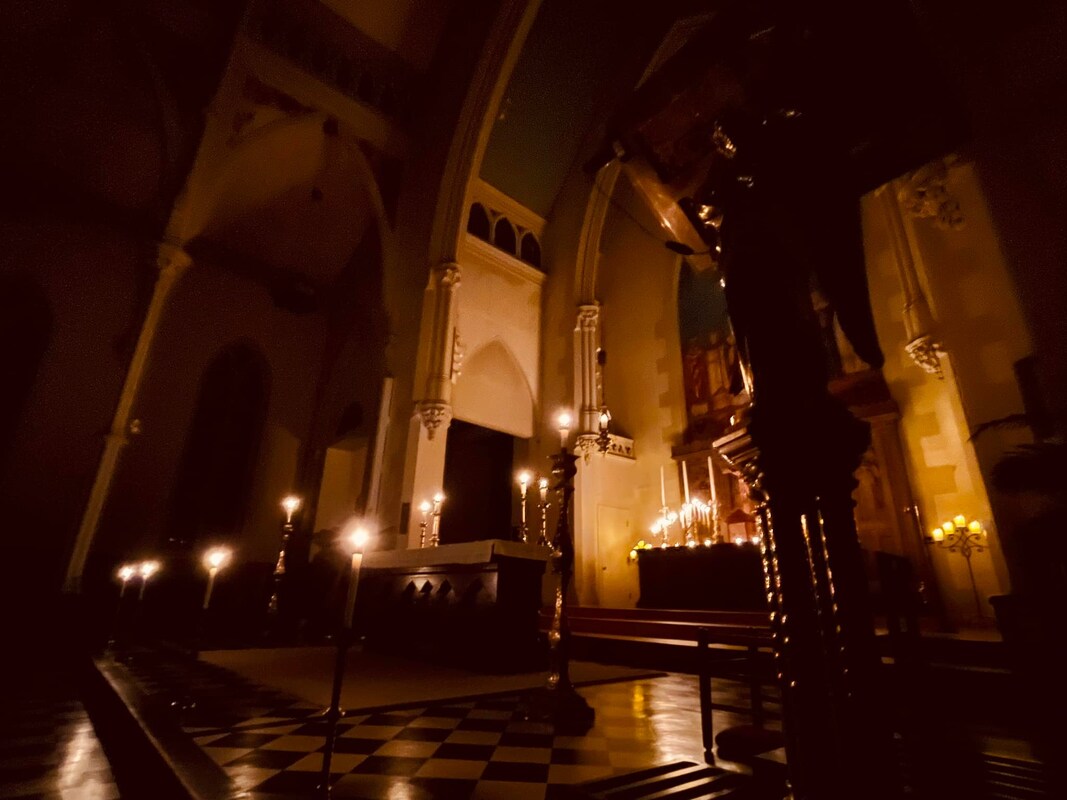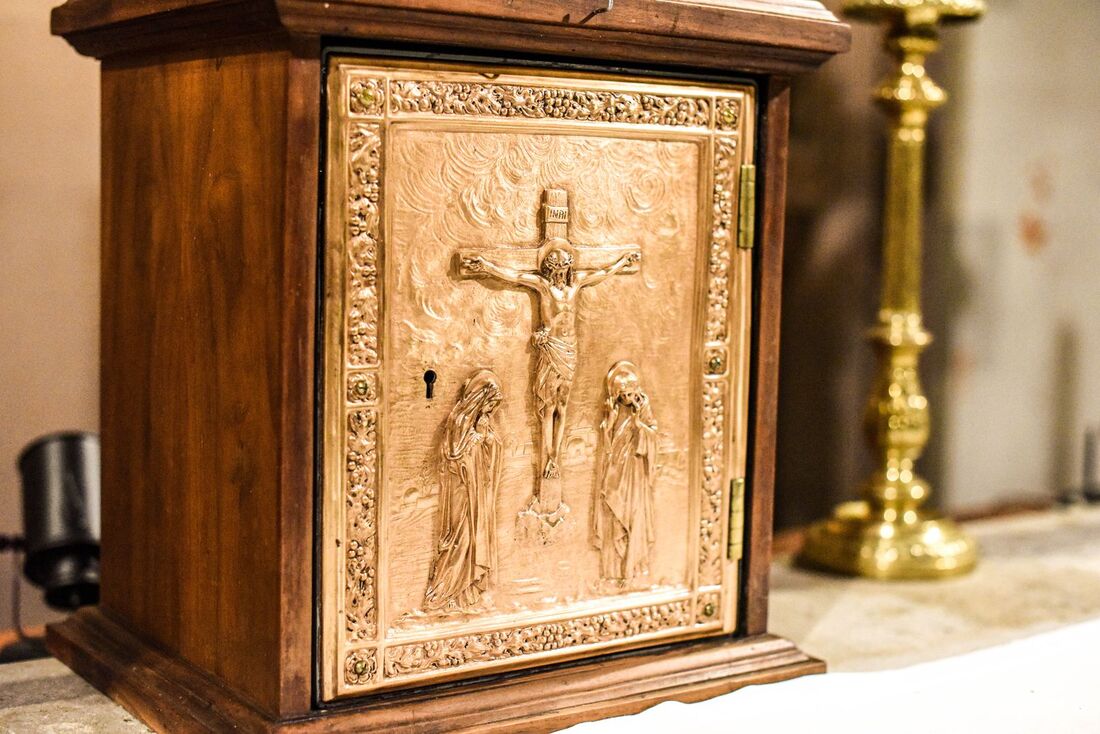Beliefs1. God continues to speak through Scripture and the Tradition of the Church. As we seek to let God share Himself with us and speak through us, we too embody Tradition. 2. The shepherds (Bishops) of the Church are connected through a spiritual lineage to the first Apostles of Jesus. 3. In the mystery of the Incarnation, God became human, and touches us in a special way through the sacraments--which are unique encounters with God and channels of grace. 4. We are surrounded by an invisible cloud of witnesses, of saints, who accompany us on our journey. 5. God’s mercy must be shared lavishly, and so we respect the individual journey of each pilgrim, and so open our doors to all. |
Values
|
1. We value, at the center of our worship, the transformative gift of the Eucharist[1].
2. We value worship that expresses reverent gratitude for the Eucharist, underscores the transcendence[2] of God and awakens a sense of awe. 3. We value one another, taking to heart the new commandment: “Love one another as I love you[3]”[4] 4. We value “loving the Lord our God with all our mind.[5]”[6] 5. We value the church as a community that welcomes all people, where viewpoint diversity is considered a blessing.[7] |
Footnotes
[1] Otherwise known as Communion, we wholeheartedly embrace the Church’s belief in the Real Presence of Jesus in this Sacrament. We believe it somehow to be the Body and Blood of the Risen Christ, foreshadowed as the Bread of Angels in Psalm 78:25, food for our faith journey.
[2] That God be transcendent does not mean distant. The Eucharist, both mysterious and tangible, helps us to understand this. The Eucharist also helps us to understand that the beauty of our worship is always for the sake of intimacy with God and one another.
[3] John 13:34, 15:12
[4] We recognize that such generosity of heart, such lavish mercy, is possible only by the grace of God. As human beings, we are far too different from one another for this to occur spontaneously. Moreover, only Jesus can love as Jesus loves. We are pupils of His heart, from which he sends us forth to “go and make disciples of all nations” (Matthew 28:19).
[5] Matthew 22:37, Mark 12:30, Luke 10:27
[6] As Saint Thomas Aquinas (+1274) tells us, “Wonder is the desire for knowledge”. Rooted in the sacred awe that we experience together, we are committed as a community to the theological pursuit of truth.
[7] Jesus’ “kingdom is not of this world” (John 18:36). The course of action for Christians in the political sphere, therefore, is not always obvious and may lead to different political perspectives amongst parishioners. We are certainly not removed from the world, as we are called to love “in truth and in action” (I John 3:18). Because we may have different understandings of how to “act justly” (Micah 6:8), as a church, we choose to minister primarily in our immediate community and we pray that each parishioner go forth, formed by our common faith and according to the dictates of individual conscience, to make the world a better place.
[2] That God be transcendent does not mean distant. The Eucharist, both mysterious and tangible, helps us to understand this. The Eucharist also helps us to understand that the beauty of our worship is always for the sake of intimacy with God and one another.
[3] John 13:34, 15:12
[4] We recognize that such generosity of heart, such lavish mercy, is possible only by the grace of God. As human beings, we are far too different from one another for this to occur spontaneously. Moreover, only Jesus can love as Jesus loves. We are pupils of His heart, from which he sends us forth to “go and make disciples of all nations” (Matthew 28:19).
[5] Matthew 22:37, Mark 12:30, Luke 10:27
[6] As Saint Thomas Aquinas (+1274) tells us, “Wonder is the desire for knowledge”. Rooted in the sacred awe that we experience together, we are committed as a community to the theological pursuit of truth.
[7] Jesus’ “kingdom is not of this world” (John 18:36). The course of action for Christians in the political sphere, therefore, is not always obvious and may lead to different political perspectives amongst parishioners. We are certainly not removed from the world, as we are called to love “in truth and in action” (I John 3:18). Because we may have different understandings of how to “act justly” (Micah 6:8), as a church, we choose to minister primarily in our immediate community and we pray that each parishioner go forth, formed by our common faith and according to the dictates of individual conscience, to make the world a better place.




